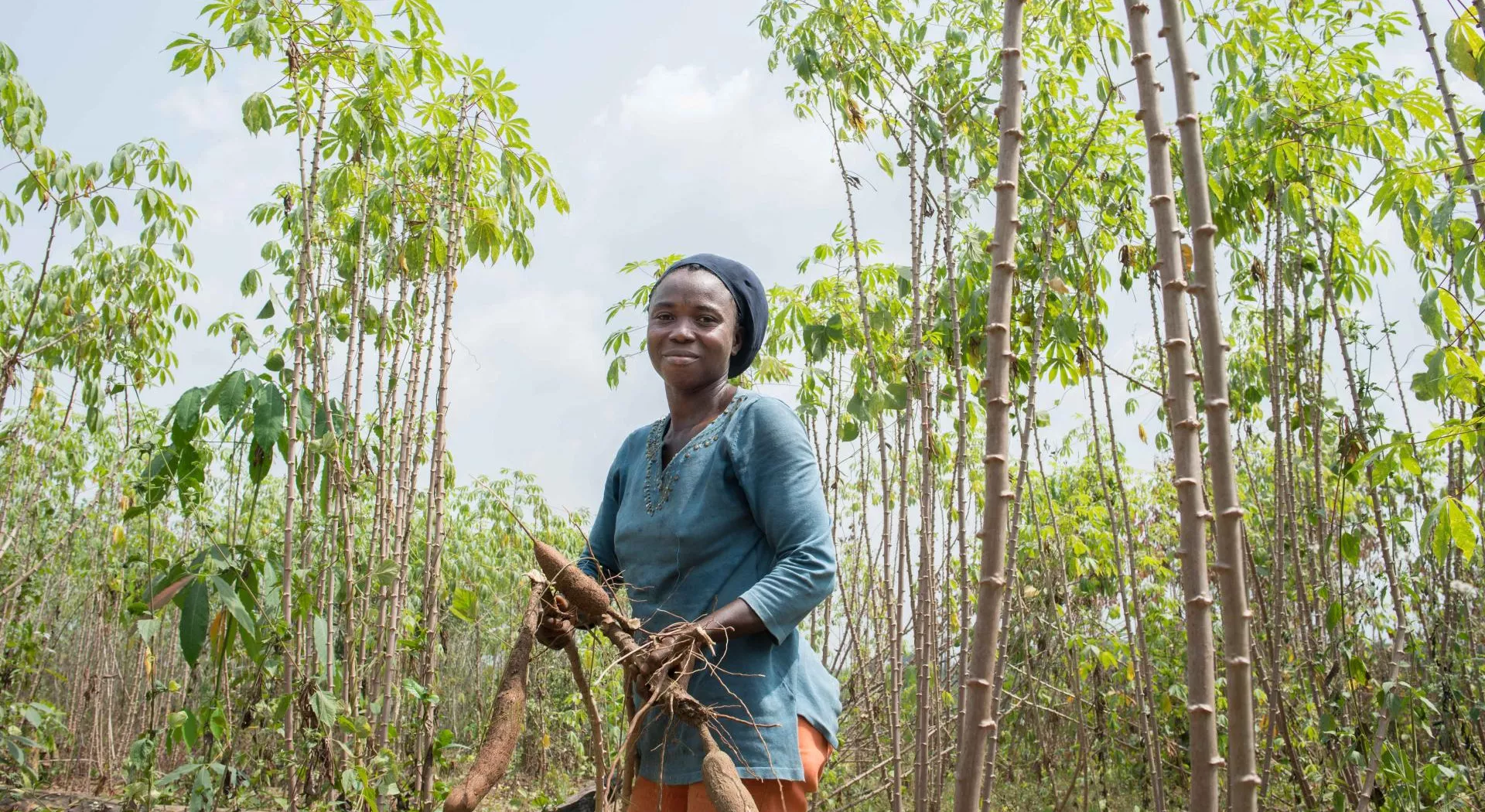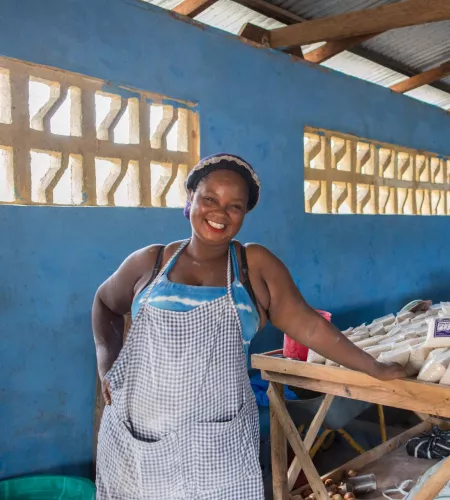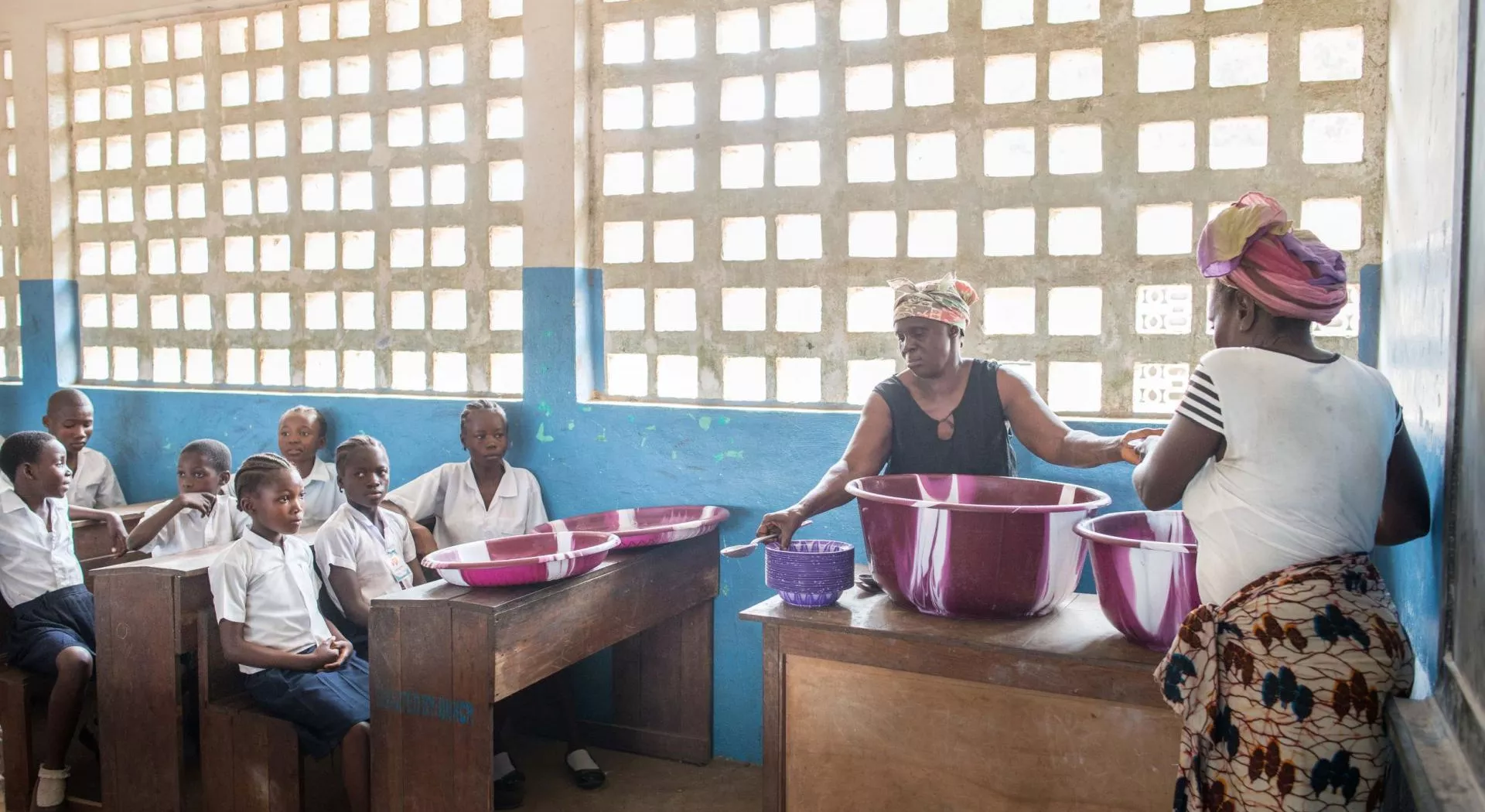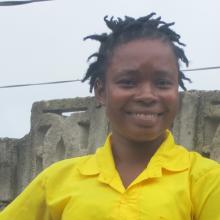ZOA works in almost all Liberian counties, most of our activities take place in Grand Cape Mount, Bomi, Montserrado, Margibi, Bong and Nimba. In order to have the most impact, also in the long term, we focus on livelihoods and food security, education and peacebuilding. Our work in these sectors complements and contributes to the building a healthy, resilient society.

We are here in Liberia
Liberia is still deeply impacted by the wounds inflicted during the civil war. Trauma and hatred lead to broken communities. Working together on rebuilding was nearly an impossible undertaking. In 2013, ZOA started offering emergency relief. Over the years, we worked with local communities towards recovery.
The long shadow of a civil war
many challenges
Working side by side on recovery
ZOA began working in Liberia in 2003, helping people to rebuild their lives following the devastation of a 14-year civil war. Liberia’s recovery from the war, and the Ebola epidemic, has been a slow process, with many setbacks. Although the country has been relatively stable and peaceful over the last years, many challenges remain.
Rebuilding trust and sustaining inclusive peace
Liberian communities still experience the impact of the violent war that ended 15 years ago. We help individuals and communities who are traumatized by the war to rebuild safety and trust and to foster reconciliation and healing. ZOA works with several partners to encourage inclusive dialogues and to strengthen trust between communities, community and traditional leaders, and government institutions. In collaboration with with the Liberia Peacebuilding Office we promote reconciliation before and after elections.
Besides this, ZOA supports an inclusive society with women and men having equal opportunities in life. Several projects make efforts to improve women empowerment in Liberia’s traditional, largely male-dominated society. For this, amongst others, ZOA uses the Appreciate Inquiry (AI) methodology. This methodology involves a multi-level, positive strategy encompassing existing grassroots women’s groups, building capacity and facilitating dialogue and advocacy with local authorities and traditional leaders to establish more inclusive and accountable decision making. ZOA executes this approach through own staff but also through cooperation with local partners.
The impact of ZOA's work in Liberia in 2022
With a team of 36 staff members we supported 18,905 people.
Education as a key to employment
Liberia’s high levels of youth unemployment are a cause of concern with respect to the maintenance of peace in this fragile post-conflict setting. Therefore, is is crucial to educate and support young people to gain employment. In ZOA’s Home Grown School Meals programme in Margibi County the yield of local farmers is used to create delicious and nutritious school meals. These meals are an important trigger for children to go to school. In this programme, 5,484 students receive a nutritious meal in school on a daily basis. As a result, enrolment in the 21 schools increased by 21%. ZOA also established 65 youth internships in ‘’Small Business Management, Food Processing and Agro-Entrepreneurship’’. The interns are equipped to participate in this growing sector to either start their own small businesses.
A comprehensive approach to food security
Since 2013, ZOA has worked alongside the Ministry of Agriculture to improve food security and increase resilience in the rural areas of Liberia. The programme focuses on building the capacity of smallholder farmers to significantly increase their productivity and to engage in new market and value chain linkages. We work with 3,000 farmers in 100 communities, empowering them for a long-term positive future. We support them to adopt improved agriculture practices to grow a wider range of nutritious and marketable crops. Morover, we help them to get better prices by processing these crops and connect them to the market. The approach is successful: cassava yields, for example, more than doubled.
In the same villages, we establish mothers groups that support women to grow, prepare and market nutritious vegetables from their own gardens. Women, men and children learn about nutrition, food safety and good hygienic and dietary practices to reduce under-nutrition and to support healthy child development.

Innovation in water, sanitation and hygiene
Improvements in the provision of drinking water deliver immediate results. Cholera and diarrhea decrease, and child-mortality rates also fall. ZOA works with partners to drill boreholes, to establish hand pumps, to build school latrines and hand-washing stations and to educate communities about good hygiene practices. In the WASH (water, sanitation and hygiene) sector, ZOA has made a groundbreaking contribution by establishing and professionalizing manual drilling in Liberia. ZOA’s work has enabled the expansion of this cost-effective, innovative and high-quality technique to several counties. In total, over 200 boreholes have been established and/or rehabilitated and provided tens of thousands of Liberians with access to safe drinking water.
Working together
Donors and partners
Our work is funded by the European Union, SIDA, Irish Aid, the United Nations Peacebuilding Fund, Vreugdenhil Dairy Foods, Hoogwegt Group, ZOA the Netherlands and Stichting De Pagter Fonds. Currently, ZOA has three local NGO partners in Liberia, who work in areas of peacebuilding (YMCA and Angie Brooks International Centre (ABIC)) and food security (LACD). Besides this, ZOA partners with the Peacebuilding Office of Liberia (under the Ministry of Internal Affairs).
Pictures on this page: Margreet Noordhof


Mary Ben, Liberia
